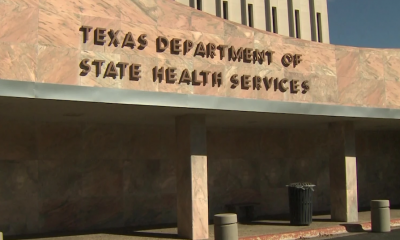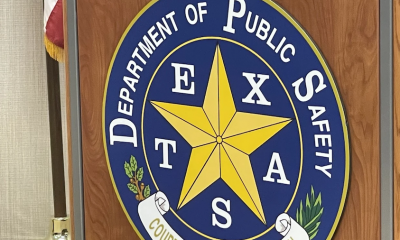Texas
Texas educators alarmed by bills targeting class discussions on racism and sexism
TX – Education advocates worry bills targeting discussions of racism and sexism in Texas public schools will hinder teachers’ ability to discuss current events, history and ethnic studies with students.
The Republican authors of the bills moving forward in the Legislature say their goal is to prevent the federal government and educators from pushing a political agenda in schools.
The Texas Senate last week passed Senate Bill 2202, which, among other things, would ban mandates for teachers to receive training or conduct class discussions on racism and sexism. Such discussions can be grounded on the ideas of critical race theory, a framework of thought focused on examining and challenging racism.
Companion legislation, House Bill 3979, could be taken up by the House as soon as Friday, according to its author, Rep. Steve Toth, R-The Woodlands.
“We send our kids to school to learn and to learn how to think critically, but we don’t send them there to be indoctrinated,” Toth told the American-Statesman.
The bills don’t mention critical race theory, but they broadly target its tenets of acknowledging white supremacy and systemic racism and sexism. They also seek to ban private funding for the development or purchase of curriculum rooted in those principles.
Republican Lt. Gov. Dan Patrick, said the legislation “stops critical race theory and 1619 myths in Texas schools.”
The 1619 Project is an initiative from The New York Times examining the role of slavery in the founding of the United States and slavery’s legacy. It was cited as inspiration in a proposal from the Biden administration for a grant program “to support the development of culturally responsive teaching and learning.”
State Sen. Brandon Creighton, R-Conroe, said on Twitter that the bill “prevents the Biden Administration from advancing mandates on requiring critical race theory curriculum.” But the proposed federal grant program is application-based, and Education Secretary Miguel Cardona said he does not intend to mandate teachings of the 1619 Project.
“I don’t think it’s our role as a federal government to be dictating what’s going to be taught in the curriculum, but it is our goal to make sure that all students have access to high-quality curriculum,” Cardona told reporters at a virtual conference Monday.
Stephanie Boyce, a professor and entrepreneur who teaches African American studies at the University of Houston, said she sees bills against critical race theory and the 1619 Project in Texas and other states as a reaction to efforts to make education more inclusive of the experiences of people of color and women.
“What critical race theory says is that we have to think critically about race and the role that it plays, has played historically, still plays now in our institutions and our systems, and how these systems continue to reproduce injustice,” she said.
Targeting current events
Critics also point to other provisions in the legislation, such as that teachers “may not be compelled to discuss current events” or controversial issues.
“It really does take away from what we try to do with public education, and that is tie knowledge to current events so that it’s relevant, so that students can relate to a lot of that material,” said State Board of Education Member Aicha Davis, a Democrat representing the Dallas area.
If approved, the legislation would affect the board’s review of social studies curriculum standards expected to begin this fall, Davis said.
Kim Denning-Knapp, a former social studies teacher and member of the Austin group Educators in Solidarity, said she worried about the potential impact on the state’s elective ethnic studies courses.
“How can you teach those courses without talking about how Mexican Americans and African Americans have been subjected to racism in our past?” she said. “There is no way to have those courses without delving into some hard topics.”
She also was troubled by another section of the legislation that said schools cannot require or reward students with credit, including extra credit, for work in “political activism.”
“Teachers are just not going to want to engage at all whatsoever in activities like that because they don’t want to have to deal with the hassle,” she said. “If somebody calls them out for being controversial and for violating the law, then activities like that are done.”
Defense of bill
Toth said the bills will not prevent civic engagement such as school field trips to the Capitol, and an updated version of the bill specifies the political activism provision pertains to work with lobbying or advocacy groups.
The legislation would not ban discussions of critical race theory, ethnic studies or current events, such as the killing of George Floyd, Toth said.
“There are two different ways that you can discuss that. You can say, ‘George Floyd was murdered, and what that police officer did was cruel and inhumane.’ … The other way you can discuss is to say, ‘All cops are racist. All cops want to kill Black people,’” he said, explaining that the bill was aimed at preventing the second.
In a statement, Creighton said the legislation will “will hold the line in Texas to ensure civics courses teach traditional history, focusing on the ideas that make our country great and the story of how our country has risen to meet those ideals.”
But Candace Hunter, a social studies teacher and parent in Austin, said the focus on fair and balanced discussions might seem innocuous, but she worries it will open the door to challenges to lessons and district efforts to acknowledge problems in history and society.
“We’re not supposed to be telling kids what to think. We’re supposed to be helping them learn how to think, and we are already doing that,” she said. “We don’t need a bill for that.”










